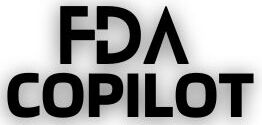Infants and young children will soon have a new measure of protection against respiratory syncytial virus (RSV), thanks to a drug developed by AstraZeneca and Sanofi. The drug, called nirsevimab and marketed as Beyfortus, was recently approved by the FDA for preventing RSV in newborns, infants, and children up to 24 months of age. This broad approval will help reduce the impact of RSV disease on children, families, and the healthcare system.
RSV is a respiratory disease that can cause serious illness in infants and children. It is especially risky for those with weaker immune systems, such as the elderly and infants whose immune systems are still developing. Smaller airways in infants and toddlers also make them more susceptible to blockage and inflammation. Each year, 1-3% of children under 12 months of age in the US are hospitalized due to RSV.
Beyfortus works by providing engineered versions of protective antibodies that help fight off RSV. This approach, known as passive immunity, is like a vaccine that provides antibodies from an external source instead of relying on the body’s own immune system. Because the drug has a longer half-life, it can protect babies throughout the RSV season, from fall through winter.
Prior to Beyfortus, the only FDA-approved antibody drug for RSV was Synagis, also from AstraZeneca. However, Synagis is only approved for treating premature babies and needs to be administered monthly due to its short half-life.
The FDA based its approval of Beyfortus on the results of three clinical trials that showed a significant reduction in lower respiratory tract infections from RSV. The drug was administered as a single intramuscular injection, and side effects reported include rash and injection site reactions. The FDA cautioned against administering Beyfortus to children with hypersensitivity reactions, as anaphylaxis has been observed with similar antibody drugs.
Beyfortus was developed by AstraZeneca, and Sanofi paid €120 million in 2017 to enter into a partnership for its development and commercialization. AstraZeneca led the development and manufacturing, while Sanofi took the lead on commercialization. The companies will share equally in the profits from sales of the drug.
In addition to FDA approval, Beyfortus has also received regulatory nods in Europe, Canada, and Great Britain. It is expected to become available in advance of the upcoming RSV season. Pricing details have not been disclosed, and regulatory review is ongoing in other countries such as China and Japan.



